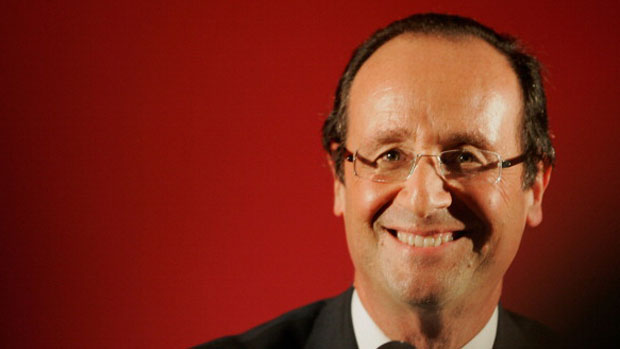Are we under-estimating the 'dynamic' Francois Hollande?
A brilliant mind, a witty companion, a bon viveur – is this why the French President gets the girls?

A free daily email with the biggest news stories of the day – and the best features from TheWeek.com
You are now subscribed
Your newsletter sign-up was successful
A FINAL thought on the Francois Hollande affair. Are we under-estimating the French President? Commentaries in the past few days – including my own – have never failed to point out that he's the most unpopular French president in recent history. Why, runs the subtext, would the actress Julie Gayet even be interested in him?
I asked a socialist, living in the south of France, for her view. And, to get straight to the point, she was completely unsurprised that a 41-year-old actress who, like many in the the artistic classes in Paris is a committed socialist, would fall for Hollande.
He may not be a looker but, my friend insists, he is courageous, sparklingly intelligent, and, above all, very witty company at the dinner table. Eat your heart out, David Cameron, Nick Clegg, Nigel Farage et al.
The Week
Escape your echo chamber. Get the facts behind the news, plus analysis from multiple perspectives.

Sign up for The Week's Free Newsletters
From our morning news briefing to a weekly Good News Newsletter, get the best of The Week delivered directly to your inbox.
From our morning news briefing to a weekly Good News Newsletter, get the best of The Week delivered directly to your inbox.
It goes back to Hollande's days at ENA, the elite Ecole Nationale d'Administration, where he was a pack leader, gathering a following of boys and girls – especially girls – because he was brilliant. He finished eighth in his class: Segolene Royale, the woman he would later move in with and have four children by, came 64th. Many of his friends were surprised that one of the superstars of his year would fancy Segolene, a girl from the sticks.
When he decided to go straight into politics – with his ENA credentials, he could have hit the fast track through the civil service or academia – he quickly made a name for himself as a dynamic speaker and a smart operator.
By the time he ran for President in 2012, he had a reputation for being sympa - a tricky one to translate from the French, but, basically, charming, good company, accessible – as well as bright (coming eighth in his year says it all). He was also admired for his ability to bring consensus – to listen to all sides and bring opposing parties together.
Much has been made of his promise to French voters to be 'Mr Normal': the British press has construed this to mean he would be a homebody, devoted to his family, up to no mischief. Wrong.
A free daily email with the biggest news stories of the day – and the best features from TheWeek.com
What he meant was that he would not be another Sarkozy – a Flash Harry keen to make friends among the bling bling crowd. He would be a "normal" sophisticated Frenchman: a bon viveur (you can bet that the croissants delivered to Gayet's borrowed flat were from the right patisserie), a lover of women and – he didn't say this bit – entitled to take a new mistress if and when.
It is true that, since entering the Elysee Palace, his popularity ratings have fallen into the abyss. But, says my socialist friend, he has displayed political courage (it was extremely bold to declare himself at this week's press conference a social democrat, at the risk of losing the support of the far left) and he has delivered on his big election promise to take government back to the true values of the Fifth Republic. This means the President dealing with foreign policy while his appointed government handles domestic affairs.
Sarkozy made an ass of himself by trying to run every aspect of French affairs, domestic and international, through the Elysee Palace. His hyper-energetic style may have given the world the impression he was in charge, but in fact he was running the country deep into debt and confusion.
Even if 85 per cent of French people feel Hollande's a failure – that was the nadir reached last autumn – there are still 15 per cent who support him and believe he wants to do the best for his country. Among them, of course, is Julie Gayet.
So, why didn't this brilliant, savvy, hugely attractive man display any of his famous bonhomie at Tuesday's press conference, I asked my socialist friend? "Ah," she replied, "that's simple. His love life is private.You are not allowed to go there."
Nigel Horne is Comment Editor of The Week.co.uk. He was formerly Editor of the website until September 2013. He previously held executive roles at The Daily Telegraph and The Sunday Times.